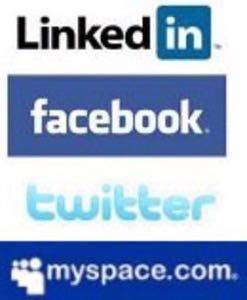A study released earlier this year by Anderson Analytics looked into the demographics and psychographics of social networking users on Facebook, MySpace, Twitter, and LinkedIn with a goal of providing marketers with information about users’ interests and buying habits as related to their network of choice. The end result is a detailed look at the profiles and habits of social networking users on the web today.

Some of the study’s findings echo things we’ve already heard. For example, Facebook users tend to be old, white, and rich. MySpace users are young…and fleeing. Other info is new: Twitterers are more likely to have a part-time job, LinkedIn users like to exercise and own more gadgets.

Editor’s note: This story is part of a series we call Redux, where we’ll re-publish some of our best posts of 2009. As we look back at the year – and ahead to what next year holds – we think these are the stories that deserve a second glance. It’s not just a best-of list, it’s also a collection of posts that examine the fundamental issues that continue to shape the Web. We hope you enjoy reading them again and we look forward to bringing you more Web products and trends analysis in 2010. Happy holidays from Team ReadWriteWeb!
The Anderson study sampled over 11,000 GreenfieldOnline panelists (an online survey community) over an 11 month period to understand social networking services’ (SNS) reach and overlap among the U.S. Online Population. In May, the company surveyed an additional 5,000 panelists of which over 1,250 participated in an in-depth attitude and usage survey. They then grouped the participants into two categories: those who use social networks and those who don’t. To be considered a social network user, the participant had to use one of the sites in question in the past 30 days.
Of course, not everyone is devoted to one social network alone. The study found that there is some overlap between sites, as shown in the chart below.


Social Networkers, in General
Out of the 110 million Americans (or 60% of the online population) who use social networks, the average social networking user logs on to these sites quite a bit. They go to social networking sites 5 days per week and check in 4 times a day for a total of an hour per day. Nine percent of that group stay logged in all day long and are “constantly checking what’s new.”
Interacting with Brands
When it comes to brands online, the study found that:
- 52% of social networkers had friended or become a fan of at least one brand,
- 17% felt positive when seeing a brand on a social network,
- 19% felt negative when seeing a brand on a social network,
- 64% were neutral or didn’t care about brands on social networks,
- 20% would like to see more communication from brands online,
- 35% would not like to see more communication,
- 45% were neutral or didn’t care.
Social Networking Myths Shot Down
A couple of interesting things that came out of the study included the debunking of some social networking myths. Social networkers are not as interested in friending strangers or creating “fake” friends to boost their ego. Out of the group, 45% connect only to family and friends and another 18% will connect only to people they’ve met in person. In other words, two-thirds are connecting to people they actually know. Only 10% of those surveyed said they will friend anyone.
Also interesting is that only 15% of social networkers say they log on at work, thus debunking another myth about how prevalent social network use is at the workplace.
Non-Social Networkers
The study revealed the reasons why some online users aren’t into social networks. Surprisingly, it’s not because they hate technology – they spent just as much time on the web as the networkers do. Instead, they don’t use social media because either they don’t have the time, they don’t think it’s secure, or they think it’s stupid. Yet even out of the time-starved group, 22% report they’ll start using social media in 3 months and 27% said they’ll start using it in a year.
Continue to Part 2 for details on Facebook, MySpace, Twitter, and LinkedIn.
















